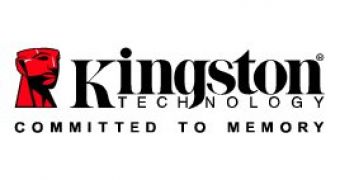The world's more proficient DRAM makers seem to be giving Taiwanese companies a hard time staying in the race for DRAM advancements. According to David Sun, co-founder of the world's top DRAM module maker Kingston Technology, these developers need to perform mergers and long-term collaborations in order to consolidate their respective positions, suggesting that the total number of Taiwan-based DRAM manufacturers should reduce to two.
Consolidation attempts have occurred in the past, the latest being the one in which the government itself tried to enact its own consolidation project. In the end, however, according to Sun, it was not active enough. The co-founder's opinion is that the overall plan was not at fault, the fault lying with the government itself that could have more actively worked with the companies towards better relations and more stable agreements, instead of just spelling out its expectations and then letting the financially struggling companies fend for themselves.
This situation has already had certain consequences. MOEA for instance (Taiwan's Ministry of Economic Affairs) no longer processes DRAM companies' application for government funds, following the lawmakers' rejection of the funding project. This means that the restructuring of such companies can no longer be aided by the government, which makes the situation even more complicated.
Sun thinks that consolidation plans would be just in time, as the Taiwanese DRAM industry has just reached the maturity level required for such development, as has the LCD panel market. Nevertheless, with the chipmakers' losses recently narrowing significantly on a recovery in chip prices, market watchers feel that it is too late for this, especially considering the lack of access to the aforementioned government funding.

 14 DAY TRIAL //
14 DAY TRIAL //